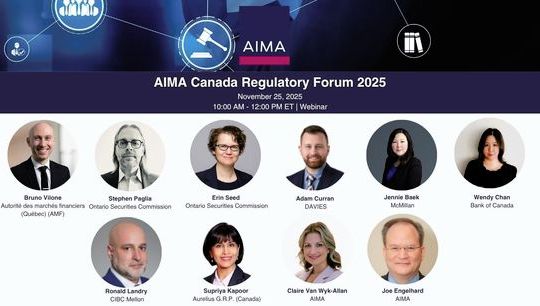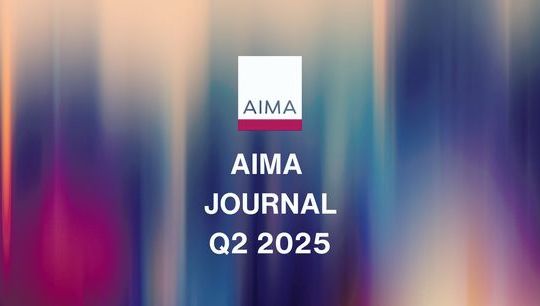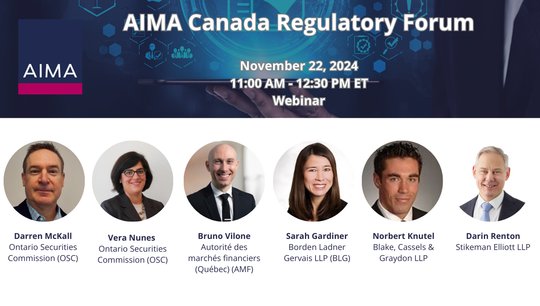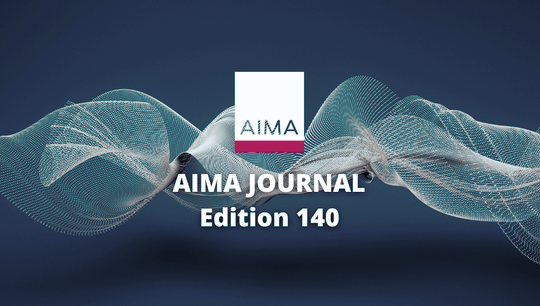Conduct unbecoming: the hidden challenges of SMCR
By Robert Quinn , Robert Quinn Consulting
Published: 18 January 2019
The extension of the Senior Managers and Certification Regime (SMCR) to FCA regulated firms in December 2019 presents AIMA members with the opportunity to use this key regulatory change as a catalyst to implement improved management practices across the board. Firms should consider taking a robust approach in their application of SMCR in order to articulate reporting lines, identify the required management information to supervise properly and empower senior managers.
The UK Parliament enacted SMCR legislation in response to the 2008 banking crisis and significant conduct failings such as the manipulation of LIBOR. The FCA’s increased focus on ‘culture’ and individual conduct and personal accountability goes beyond the SMCR legislation and represents a key shift for them. Viewed through the SMCR lens, this includes:
- Encouraging a culture whereby staff at all levels take personal responsibility for their actions
- Ensuring firms and staff clearly understand and can demonstrate where responsibility and accountability lies
The New Regime
SMCR will supersede the Approved Persons Regime on 9 December 2019. At a high level, firms will need to:
- Identify Senior Managers who are personally responsible for the areas of business that they manage
- Identify employees undertaking Certification Functions, which includes those employees who interact with clients, are material risk takers, are proprietary or algorithmic traders or who perform a significant management or supervisory role
- Implement a formal fitness and propriety assessment that requires a number of due diligence checks on an initial and ongoing basis for both Senior Managers and Certified Function holders
- Introduce new Conduct Rules, which are similar to the previous FCA Statements of Principle for Approved Persons, that apply directly to most (if not all) employees within a firm
- Develop and apply a more formal training programme
- Ensure timely reporting to the FCA for Senior Manager appointments and any conduct rule breaches by employees
- Ensure accurate and timely information is posted on the new FCA Directory
- Implement a suite of new written policies and procedures that document a significant number of new requirements that SMCR brings into play
Creating a Road Map
Unlike aspects of - say - AIFMD and MiFID II which contained certain complexities and ambiguities, SMCR is more straightforward. However, firms should not underestimate the new regime as an “HR re-papering exercise”. SMCR is a significant piece of change management legislation that cuts across compliance, legal, human resources and senior management. Managers should appoint the right individuals who can foresee the potential sensitivities this legislation might create and allow sufficient time for implementation. The banks learned this lesson in 2016 when they implemented SMCR.
Firms should be prepared to expect questions and respond to potential concerns from employees with respect to their role, responsibilities and accountability under the new regime, insurance coverage, employment contracts, compensation, regulatory references, background checks and a whole host of other issues. Proper consideration and handling of these issues in order to achieve amicable resolution will take time. It is therefore important to start your SMCR project as early as possible and allow that time in order to not negatively impact company morale with a rushed, heavy-handed approach.
Creating a road map now that identifies action items in 2019 will give your firm the tools to succeed.
Identify the “Surprises”
This article is not going to recite what’s required by the new legislation. Rather, it helps you identify five key areas which may put time-consuming bumps in your road map.
1. Partners of LLPs
The FCA expects that most partners in a firm will be a Senior Manager. Junior partners and partners with no involvement in the management of the firm will not need to be appointed as Senior Managers.
This creates a conflict with the HMRC tax rules. In order for a limited liability partnership to receive beneficial tax treatment, it is assumed that the partner would have significant influence over the affairs of the LLP. Firms who have partners who are not Senior Managers may face HMRC aggressively seeking to apply a less favourable tax treatment to such partners.
LLPs should review this area carefully.
2. Overseas Employees
There is no territorial limitation to the Senior Managers Regime. SMCR applies to anyone who undertakes a Senior Manager Function anywhere in the world. For Senior Managers based outside the UK who may occupy a senior management role within a group context, but who otherwise are not impacted by the UK regulatory environment or have a detailed understanding of the application of FCA rules, this may present a challenge. Senior Managers will be personally liable to the FCA if they do not take “reasonable steps” to supervise their area of the business – showing competency in FCA rules is a key measure in demonstrating reasonable steps.
With many global firms having overseas principals nominally supervising the UK entity, firms should assess whether they have the right Senior Managers in place and whether implementing a UK-specific continuing education programme is warranted.
Similarly, the Certification Regime has an extra-territorial element as well. Certification applies globally to all employees who are deemed to be material risk takers. Certification also applies to all employees performing Certified Functions who are dealing with, or have contact with, UK clients.
Decisions about which overseas employees fall into these categories may take some time. Keep in mind that firms are required to assign the responsibility of implementation and oversight of both the Senior Managers Regime and the Certification Regime to one or more Senior Managers.
3. Formal Training
SMCR requires firms to provide training on the Conduct Rules at least annually. Fitness and propriety assessments of employees undertaking a Certified Function also lend themselves to using continuing education as a tool to demonstrate competency.
However, firms should also be aware of specific documents they will need to provide to the FCA when appointing a new Senior Manager. These important requirements have not been fully covered in recent FCA publications.
When appointing a new Senior Manager, firms will need to provide:
- A description or copy of the candidate’s Induction Programme
- A description or copy of the candidate’s Skills Gap Analysis
- A description or copy of the candidate’s Learning and Development Plan (including the name of the individual responsible for monitoring the candidate’s progress against the development points and the time frame for completion)
- A description or documentation setting out how the competency was assessed (demonstrating competence and suitability mapped to the specific role and responsibilities of the role)
Most firms will not currently have such a granular formal training programme in place. They will therefore need to spend some time assessing how best to address the gaps at all levels of the business and ensure implementation in good time.
4. Individual Accountability versus Collective Accountability
The regulatory shift from collective responsibility to individual accountability will create many challenges. With the appointment of Senior Managers who are now personally liable for properly managing their area of the business, there may be concerns raised about what is going on in a certain department, or how management information is provided to the Senior Manager. The adoption of this framework is not without moral hazard. There is, for example, the potential for Senior Managers to make decisions in order to reduce their personal liability i.e. protect their ‘fiefdom’, as opposed to considering the needs of the firm as a whole.
It may be prudent to arrange for an independent assessment or health check of the business, to give confidence to that Senior Manager that the firm is compliant with industry standards and in step with its peer group, as well as ensuring that policies and procedures are up to date and tailored to the business.
5. Conduct Rule Breaches and the Parameters of “Acceptable Behaviour”
The FCA has been explicit that Approved Persons must act with honesty and integrity at all times. The regulator has successfully brought several high-profile enforcement cases of individuals in senior positions, who have been banned for behaviour both within and outside the workplace - conduct that was deemed to demonstrate a lack of fitness and propriety. A challenge for firms is that the concepts of ‘honesty’ and ‘integrity’ can be subjective; firms must remember that they are not necessarily seeking to make moral judgements on individuals.
Under SMCR, not only must firms report conduct breaches to the FCA, they are also obliged to include such breaches in regulatory references requested from a potential new employer. This heightens the risk for employees that are found to be in breach, and this could create a myriad of HR/employment law challenges. Firms should - inter alia - consider what types of employee behaviour within and outside the workplace might be considered a breach of the Conduct Rules and how that might be communicated to employees.
Taking Your Firm to the Next Level
SMCR is coming and it is here to stay. By investing the time and resources into understanding the changes and empowering Senior Managers with the right tools to succeed, firms can successfully embed a culture of corporate governance that will both improve the controls within the business and impress institutional investors.







